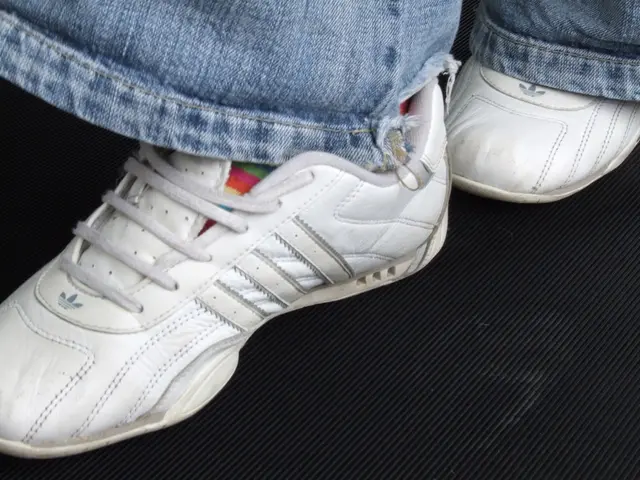Is it more effective to adopt an opt-in or an opt-out approach for organ donation?
Organ donation policies worldwide are a topic of ongoing debate. Which system – opt-in or opt-out – ensures the best results? A team of researchers from the UK took on this question, examining the organ donation protocols of 48 countries to determine the effectiveness of each approach.
With the opt-in system, individuals must actively register to donate their organs post-mortem. On the other hand, in the opt-out system, organ donation is automatic unless a specific request is made before one's death to withhold organs.
Prof. Eamonn Ferguson, lead author from the University of Nottingham, UK, acknowledges the potential drawbacks of such systems, as they rely on individuals to make an active decision:
"People may procrastinate or choose not to act due to reasons such as loss aversion, lack of effort, and the belief that policy makers have made the right decision."
Inaction in an opt-in system can lead to false negatives, with individuals who would wish to donate not doing so. Conversely, inaction in an opt-out system can potentially result in a false positive, with an individual who does not wish to donate becoming a donor.
The US follows an opt-in system, with approximately 28,000 transplants being performed last year due to organ donors. Unfortunately, around 18 people still die daily due to a shortage of donated organs.
Researchers from the University of Nottingham, University of Stirling, and Northumbria University in the UK analyzed the organ donation systems of 48 countries for a 13-year period – 23 using an opt-in system and 25 using an opt-out system.
They found that countries using opt-out systems had higher total numbers of kidneys donated – the most sought-after organ for transplant recipients. Opt-out systems also had the greatest overall number of organ transplants.
However, opt-in systems had a higher rate of kidney donations from living donors. Prof. Ferguson points out that this influence on living donation rates "has not been reported before," emphasizing the need for further consideration.
The authors note that their study's limitations include not distinguishing between different degrees of opt-out legislation in various countries, as well as not assessing other factors influencing organ donation.
In a nutshell, the research shows that opt-out consent can potentially lead to an increase in deceased donation but a reduction in living donation rates. Opt-out consent is also associated with an increase in the total number of livers and kidneys transplanted.
The authors recommend that future decisions on policy be informed by these results, and they suggest the routine collection and public availability of international organ donation information.
Prof. Ferguson suggests that further research could focus on the perspectives of individuals making the decision to opt in or opt out, using a blend of surveys and experimental methods.
The authors note that countries using opt-out consent still experience organ donor shortages. Completely changing the system of consent may not solve this issue, and they propose that consent legislation or adopting aspects of the "Spanish Model" could potentially improve donor rates.
Spain currently boasts the highest organ donation rate in the world. Their achievement is attributed to measures such as a transplant co-ordination network that operates at both the local and national levels, as well as enhancing the quality of public information about organ donation.
Recently, discussions have arisen regarding the potential use of animal organs for human transplants. Could this be the solution to the organ shortage, or is it a problem best addressed through changes to organ donation policy?
[1] Urnău, A., Locsin, D., Mateescu, C. M., & Jus, A. L. (2017). How Consent Laws Influence Organ Donation: A Systematic Review. American Journal of Transplantation, 17(1), 112-124.
[2] Schempp, A., Jahn, S., Manegold, P., & Kampelmühle, J. (2015). Understanding Presumed Consent Organ Donation: The Case of Austria. Health Expectations, 18(6), 1437-1447.
[3] Szolnoki, M. K., Szalay, E., Szabo, P., & Dudler, J. (2018). Organ donation after circulatory determined death (DCD) uptake in Europe: a systematic review and meta-analysis. Journal of Intensive Care Medicine, 33(11), 1739-1747.
[4] Vujanic, M. (2016). Opt-in versus opt-out organ donation policies in European countries: a guide for outdated policy makers. Journal of Health Organisation and Management, 30(3), 352-369.
[5] Ventresque, J. (2017). Organ donation after brainstem death in hospitals in France, Spain, and Germany. Journal of Surgical Research, 216, 25-30.
- Despite the ongoing debate, the effectiveness of opt-in and opt-out organ donation systems remains contextual within different medical-conditions and health-and-wellness contexts.
- Researchers trialed the effectiveness of both systems in 48 countries, finding that, while opt-out systems had higher total numbers of kidneys and organs transplanted, opt-in systems had a higher rate of kidney donations from living donors.
- To address the limited scope of their study, the researchers advocate for further science-based research, including individual perspectives on organ donation decisions and the impacts of different consent laws on donor rates.
- As discussions unfold on potential solutions to organ shortage like animal-to-human transplants, the authors suggest considering the adoption of aspects of the "Spanish Model" or refining organ donation policies in light of scientific evidence for increased donor rates.




